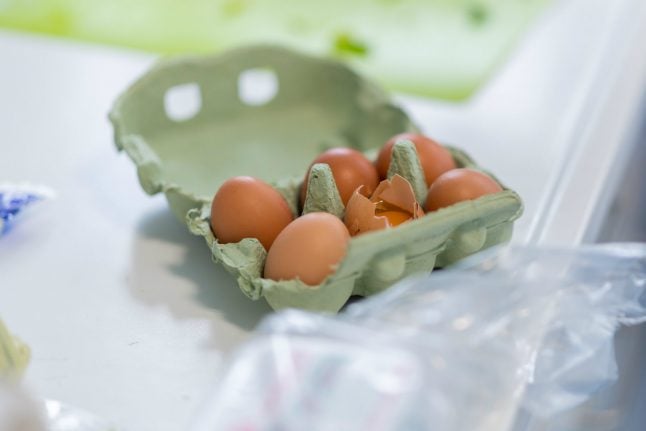EGG
Oslo pigeon lays egg in frying pan
An Oslo man's unhappiness at discovering that a pigeon had flown through a window and defecated all over his kitchen turned to laughter when he found an egg laid in his frying pan.
Published: 2 June 2015 18:56 CEST

When Stian Fjelldal returned to his flat after a day away on Monday, what he found was disgusting: a pigeon had entered in through an open window, leaving feathers and bird droppings strewn across the flat.
“It was of course terrified when it saw me and started flapping around in the kitchen,” Fjellstad told Norway's VG newspaper. “it was chaos and a lot of feathers. My first thought was to get it out. As I have had doves inside before, I thought, this time I’ll document this.”
Fjellstad filmed as he shooed the dove out the window and then surveyed the devastation afterwards.
Then suddenly he noticed a nest and egg in a frying pan on the cooker.
”I had to clean, the kitchen was a total mess. I noticed two doves on the window-sil looking at the egg. I almost felt a little guilty,” he told Norwegian broadcaster TV2.
The egg still remains in his frying pan, and Fjellstad is at loss about what to do about it.
He posted the video on Facebook, asking for suggestions.
”Lock the window, clean the kitchen, fry the egg and enjoy yourself,” suggested one respondent. “Don’t think of mother dove, there are plenty of feathered lovers in the city and it is still early spring,”
An animal lover suggested that Fjellstad should hatch and bring up the baby pigeon himself.
Fjellstad thinks the egg may contribute to science
”I work at the Norwegian Enviroment Agency. I may bring the egg into work so we can take some samples. We may find traces of pollutants, in that way the egg will come to some use,” he told VG.
Url copied to clipboard!


 Please whitelist us to continue reading.
Please whitelist us to continue reading.
Member comments